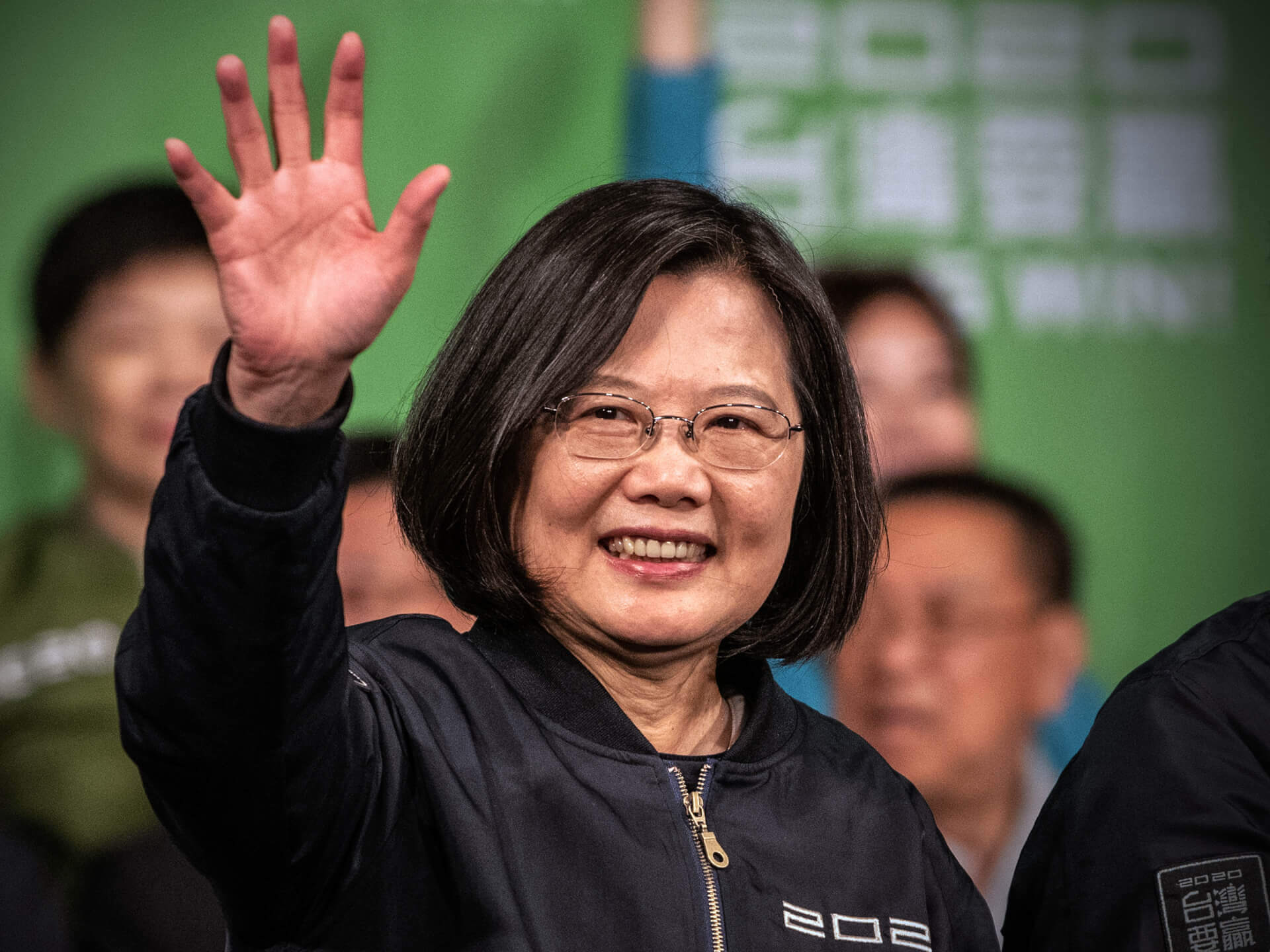Taiwanese President Tsai Ing-wen declared during an election campaign speech on Saturday that so long as she is in power, Taiwan will not relent to China.
“The consensus of the Taiwanese people … is to defend our sovereignty and our free and democratic way of life. There is no room for compromise on this,” Tsai emphasised. “My mission as president is to do everything I can to ensure that Taiwan belongs to the Taiwanese,” she asserted.
The president stressed that “resorting to war must not be the option for cross-strait relations.” “Only by respecting Taiwanese people’s insistence on sovereignty, freedom and democracy can we resume positive interactions across the Taiwan Strait,” she stated.
"I want to tell everyone that the existence of Taiwan and Taiwanese people's insistence on freedom and democracy are not a provocation to anyone," she said at the rally for her ruling Democratic Progressive Party (DPP).
— William Yang (@WilliamYang120) November 13, 2022
In an attempt to pacify China, she remarked, “I want to tell everyone that the existence of Taiwan and Taiwanese people’s insistence on freedom and democracy are not a provocation to anyone.”
However, she added that she would be willing to work with Beijing to find “mutually acceptable ways” to maintain peace.
Tsai, who is the current chairperson of the Democratic Progressive Party (DPP), made the comments during a campaign rally in central Taipei for municipal elections that will be held on 26 November. Although the local elections—to elect mayors and councillors—are normally centred around domestic issues, Tsai underscored to thousands of supporters that the threat this time is much more severe. The leader’s comments also mark the first time she has so overtly slammed Beijing in the campaign.
The election rally comes only weeks after China stated that it reserves the right to use force against Taiwan.
An honour to speak at the #WM11Assembly & share #Taiwan’s commitment to democracy with friends from around the world. In the face of constant authoritarian aggression, strengthening cooperation with like-minded partners is key to defending our shared values & way of life. pic.twitter.com/Efwl9qHf5X
— 蔡英文 Tsai Ing-wen (@iingwen) October 26, 2022
Sun Yeli, a spokesperson for the Chinese Communist Party (CCP), told a news conference in Beijing last month that “peaceful reunification” is “in the best interest” of Taiwan, as well as for the “long-term, steady development” of China.
However, he added that the Asian superpower makes “no promise to renounce the use of force” and that it reserves “the option of taking all necessary means” to achieve the goal. He clarified that the force would not be targeted at Taiwanese citizens but against “external intervention, ‘Taiwan independence’ forces, and their separatist activities.”
Against the backdrop of escalating tensions between the two, lawmakers in the United States (US) Congress have been attempting to pass an unprecedented military assistance package worth billions of dollars that will allow Washington to deliver arms and training to the island’s army to protect against potential military manoeuvres by China.
Honoured to meet with lawmakers & leaders from #Ukraine & #Lithuania. #Taiwan stands with our partners around the world in the face of authoritarian expansion & we are strengthening democratic alliances to address our shared challenges. pic.twitter.com/FSjtomcKko
— 蔡英文 Tsai Ing-wen (@iingwen) October 28, 2022
The bipartisan effort would allow the US military to immediately deploy weapons from its own artillery—such as anti-ship cruise missiles, anti-air defence systems, self-detonating drones, naval mines, command-and-control systems, and secure radios—and provide them to Taiwan. According to government officials, efforts of this scale have only been carried out for Ukraine.
In fact, Rep. Mike Gallagher (R-WI), a member of the House Armed Services Committee has said, “One of the lessons of Ukraine is that you need to arm your partners before the shooting starts, and that gives you your best chance of avoiding war in the first place.”
Sen. Dan Sullivan (R-AL), another member of the Committee, said the US aims to “make the Taiwanese a formidable military force that can defend itself, like the Ukrainians, or at least make it very hard for the People’s Liberation Army to attack them.”
Taiwan’s importance to the US was further affirmed by John Deng, the head of the Executive Yuan’s Office of Trade Negotiations. At an event hosted by the Hoover Project on Taiwan in the Indo-Pacific Region yesterday, Deng said that the island’s economic security is critical in ensuring the US’ “technological leadership and supply chain resilience.” “Taiwan’s economic prowess and resilience — which are a result of 50 years of peace and stability — have ensured the country plays a crucial role in the global supply chain,” he said, adding that Washington’s collaboration with Taipei “would make global trade safer and stronger.”
China, meanwhile, has responded harshly to the warming of relations between the US and Taiwan, arguing that they violate the one-China principle and the three China-US joint communiqués. Tensions between the US and China escalated significantly after US House Speaker Nancy Pelosi’s visit to the island in August. Following her trip, China undertook a number of aggressive military manoeuvres and suspended various avenues of cooperation with the US and repeatedly warned of firm countermeasures.
Against this backdrop, maintaining peace and stability across the Taiwan Strait will feature at the top of the agenda during US President Joe Biden’s meeting with his Chinese counterpart Xi Jinping in Bali on Monday.
Biden has already stated on a few occasions this year that US troops would defend Taiwan in the event of a Chinese invasion.

